Leadership4Faculty
Leadership4Faculty at ETH Zurich is a series of lectures, events or workshops in which external speakers and/or ETH professors address leadership topics (with a focus on the leadership of research groups and teams and/or the supervision of researchers). After a short input talk, these events provide a space where professors (from across ETH) can
- discuss their thoughts on leadership challenges they encounter
- explore leadership topics in greater depth with their peers
- exchange good practices and propose solutions for leadership challenges
Coming up next

Join this session with Dr. Desiree Dickerson to discuss how professors can help their group members improve time management, productivity and motivation. We will also discuss what depletes mental and emotional energy, including decision fatigue and the inner critic. Lastly, we explore the triggers and reasons for procrastination affecting individuals, how they can avoid these issues, helping them to progress in their work and research.
Date/Time and registration
12 September 2024 - 12:00-?14:00 | Pleaser register using this link by 11 September.
2024 Programmes
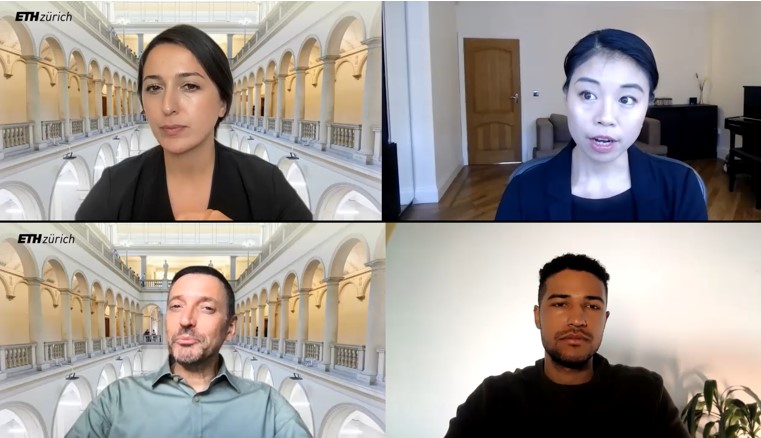
The (Virtual) Interview Training sessions take place online and enable professors, senior scientists and established researchers (Oberassitierende) to practice actual interview situations with actors in order to train efficient and successful interviewing skills. Break-?out groups allow participants to exchange ideas and experiences with peers in a small comfortable setting. The aim of this session is for you to walk away with specific tools and a better feeling for how you can challenge candidates in an interview. This will help you determine whether candidates qualify for a PhD or postdoc position and if they have the required perseverance to see through the challenges of scientific projects.
Format (online, via zoom)
- Brief introduction to the interview process and to interviewing tools
- Practice of individual interview sequences in small groups of 3-4 participants with the help of newly developed guidelines for interviews with PhD and postdoc candidates.
- Actors will take over the role of the candidate, creating a realistic and concrete practice session.
- The participants will have the opportunity to receive direct feedback from the interviewee, but also from other group participants.
- All participants will take on the role of interviewer as well as observer
- Discuss take-?aways in the plenary
Potential topics:
- How to deal with different personalities and characters in the interview
- How to verify the required competencies in the interview and elicit the qualities and the potential of a candidate
- In person vs. remote interviews
- Interviewing process
What can participants take away after attending this session? More confidence in conducting successful interviews
- An understanding on how key competencies can be assessed in interviews
- Knowledge of a proven questioning technique to understand typical candidate’s behaviour
- Profit from peer feedback
Past participant feedback
I really appreciated the Interview Training that I participated in. I especially found the "interview practice sheets” that were distributed extremely useful! During the role plays of the event, I had taken my own notes (e.g. versions of questions fit for my own case) and I have used these as support tools for myself in at least three rounds of Zoom interviews.
From an ETH Assistant Professor
Trainers
Ella Hofmann (lead) and actors from external pagewir und jetztcall_made
Michelle Blattmann Oetiker, Head of Recruitment, will be present for the introduction and the feedback session.
*All topics will of course remain confidential.
ETH Social and Leadership Competencies:
- Acting responsibly
- Building bridges
Target Group
ETH professors, senior scientists and established researchers (Oberassistants)
Location
This event will take place online.
Date/Time and registrtion
6 November 12:00-14:30
How do you balance encouragement and critical feedback when supervising young researchers? What are effective ways of communicating with new doctoral students, for example, as they approach the end of their first year? Join us for this "late lunch" session with ETH's Vice Rector for Doctoral Studies and experts from ETH Department HR and the Career Center to discuss:
- when and how to communicate critical feedback
- HR aspects to consider
- resources at ETH to support supervisees with further career development
ETH Social and Leadership Competencies:
- Enabling people
- Acting responsibly
Speakers
- Prof. Dr. Ulrike Lohman (Vice Rector for Doctoral Studies)
- Cornelia K?ppeli (HR)
- external pageChristine Kaiser (Career Center)call_made
Target Group
ETH professors at all levels (assistant, associate, full) are encouraged to share their experiences and thoughts with their colleagues.
Location
Will take place online.
Date/Time and Registration
30 October 2024 - 12:45-?13:45 CET
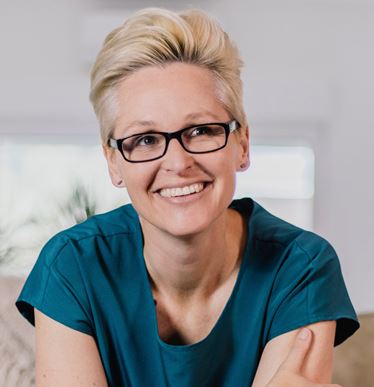
There are many factors that can slow progress in research teams. In this webinar we discuss how professors can help their group members improve time management, productivity and motivation. We will also discuss what depletes mental and emotional energy, including decision fatigue and the inner critic. Lastly, we explore the triggers and reasons for procrastination affecting individuals, how they can avoid these issues, helping them to progress in their work and research.
Format / Agenda
- Short talk by guest speaker, Desiree Dickerson, followed by Q&A
- Group discussions based on topics suggested by ETH professors
- Take-?aways in plenary
Potential topics include:
- Individual and team performance factors
- Enhancing group productivity
- Helping team members flourish
ETH Social and Leadership Competencies:
- Driving innovation
- Building bridges
Speaker:
Dr. Desiree Dickerson, a former postdoctoral researcher in the neurosciences and a clinical psychologist, has specialized in mental health and well-?being, in particular, for young researchers in academia. Dr. Dickerson has worked at both ends of the spectrum - from (lab) bench to bedside. Her goal is to take the best of neuroscience, behavioural economics, and psychological practice and break it down into meaningful, practical tools to help academics to achieve peak performance in highly challenging, high-?stress environments.
After having completed her PhD in Psychology at the University of Otago in new Zealand, Desiree Dickerson worked in research at the Institute of Science and Technology (IST) in Austria. In addition to giving scientific talks at centers such as the Institute for Neurophysiology, at Charité in Berlin or at the Max Plank Institute for Brain Research in Frankfurt am Main, Dr. Dickerson has also offered workshops (e.g. Mental Models) at EPFL or UZH, and published opinion pieces in publications such as Nature or Science.
Date/Time and registration
12 September 2024 - 12:00-?14:00
Pleaser register using this link by 11 September.

Asking for or receiving feedback can be one of the most challenging uncomfortable things we can do as leaders. Yet asking for feedback can be incredibly powerful: for becoming better leaders, for being better able to support people, for modelling that it is OK not to be perfect, and for creating a culture in the team that encourages a learning mindset.
In this session with Prof. em. Dr. Geraldine Fitzpatrick (TU Vienna), we explore how to ask for and receive feedback, both continuous as well as during higher-level annual feedback talks, and how to move from reaction to action. Topics include:
- Using feedback to improve collaboration between supervisor and supervisee/team
- Gathering leadership feedback
- Managing reactions/feelings to feedback
- Receiving and responding to feedback
ETH Social and Leadership Competencies:
- Enabling people
- Acting responsibly
Speaker
Prof. em. Dr. Geraldine Fitzpatrick is Professor of Technology Design and Assessment and leads the Human Computer Interaction Group in the Informatics Faculty at TU Wien. Her research is focussed on socio-?technical and people-?centred perspectives of computing. She is an ACM Distinguished Scientist, an IFIP Fellow, and recipient of a SIGCHI Lifetime Service Award and an IFIP TC-?13 Pioneer Award.
She has a diverse background, with a PhD in CS&EE (Uni of Queensland), an MSc in Applied Positive/Coaching Psychology (UEL), international experience in academia and industry in Austria, England and Australia, and a prior career as a nurse/midwife. She is passionate about how we can craft better academic cultures, hosts the Changing Academic Life podcast series and delivers academic career development and leadership development consultancy, facilitation, training and coaching internationally.
For more information see external pagehttps://geraldinefitzpatrick.com/call_made external pagehttp://www.changingacademiclife.comcall_made and external pagehttps://www.informatics-?europe.org/services/academic-?leadership.htmlcall_made
Target Group
ETH professors at all levels (assistant, associate, full) are encouraged to share their experiences and thoughts with their colleagues.
Location
Will take place online.
Date/Time and Registration
13 June 2024 - 12:00-?14:00 CET

The (Virtual) Interview Training sessions take place online and enable professors, senior scientists and established researchers (Oberassitierende) to practice actual interview situations with actors in order to train efficient and successful interviewing skills. Break-?out groups allow participants to exchange ideas and experiences with peers in a small comfortable setting. The aim of this session is for you to walk away with specific tools and a better feeling for how you can challenge candidates in an interview. This will help you determine whether candidates qualify for a PhD or postdoc position and if they have the required perseverance to see through the challenges of scientific projects.
Format (online, via zoom)
- Brief introduction to the interview process and to interviewing tools
- Practice of individual interview sequences in small groups of 3-4 participants with the help of newly developed guidelines for interviews with PhD and postdoc candidates.
- Actors will take over the role of the candidate, creating a realistic and concrete practice session.
- The participants will have the opportunity to receive direct feedback from the interviewee, but also from other group participants.
- All participants will take on the role of interviewer as well as observer
- Discuss take-?aways in the plenary
Potential topics:
- How to deal with different personalities and characters in the interview
- How to verify the required competencies in the interview and elicit the qualities and the potential of a candidate
- In person vs. remote interviews
- Interviewing process
What can participants take away after attending this session? More confidence in conducting successful interviews
- An understanding on how key competencies can be assessed in interviews
- Knowledge of a proven questioning technique to understand typical candidate’s behaviour
- Profit from peer feedback
Past participant feedback
I really appreciated the Interview Training that I participated in. I especially found the "interview practice sheets” that were distributed extremely useful! During the role plays of the event, I had taken my own notes (e.g. versions of questions fit for my own case) and I have used these as support tools for myself in at least three rounds of Zoom interviews.
From an ETH Assistant Professor
Trainers
Ella Hofmann (lead) and actors from external pagewir und jetztcall_made
Michelle Blattmann Oetiker, Head of Recruitment, will be present for the introduction and the feedback session.
*All topics will of course remain confidential.
ETH Social and Leadership Competencies:
- Acting responsibly
- Building bridges
Target Group
ETH professors, senior scientists and established researchers (Oberassistants)
Location
This event will take place online.
Date/Time and registrtion
4 June 12:00-14:30
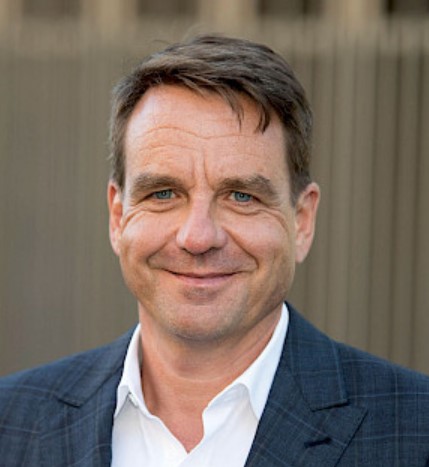
How can professors foster curiosity, openness and intrinsic motivation in their groups to enhance innovation? What are some issues that affect innovation in research groups? In this session, Prof. Dr. Christoph Clases explores leadership and innovation in scientific practice.Topics that might be addressed include:
- Innovation as a socio-technical process
- Expectation setting: Balancing autonomy and guidance of scholars
- Framing team activities by envisioning and scoping
- Balancing collaboration vs. competition
- Networks as part of a teams' 'innovative ?milieu’
- Working with typical scientific reward structures
Format
- 2 hours online
- Short talk interspersed with Q&A
- Faculty peer discussions on topics relevant to participants
- Take-?aways in plenary
ETH Social and Leadership Competencies
- Driving innovation
- Enabling People
Speaker
Prof. Dr. Christoph Clases studied psychology, philosophy and linguistics at the University of Hamburg, and received his doctoral degree in psychology at the Free University Berlin. He lectured and conducted research at ETH Zurich, UZH, the Technical University of Hamburg-Harburg, the University of Kiel, and the University of St. Gallen. As chair of an institute, Christoph Clases helped to develop the School for Applied Psychology FHNW. For about 15 years now, he has been supporting individuals and companies as a private consultant at AOC, committed to improving the quality of organization and work life through learning and development expertise.
Target Group
ETH professors at all levels (assistant, associate, full) are encouraged to share their experiences and thoughts with their colleagues.
Location
Will take place online, via zoom
Date/Time and Registration
21 March 2024 - 12:00-?14:00 CET
Please register here by 20 March.
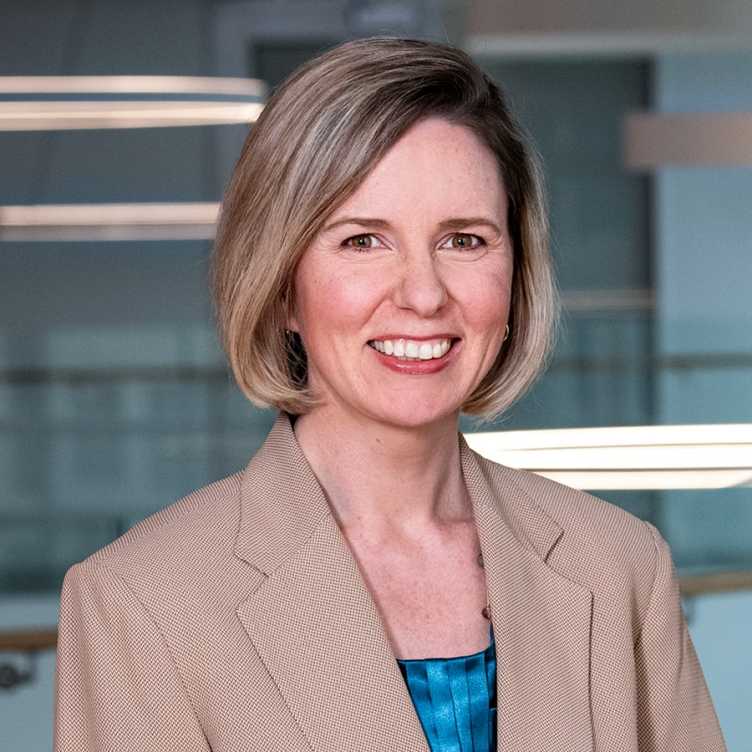
In the session, we will review a framework for building collective intelligence in teams and organizations, including laboratory groups. Discussion will focus on strategies that can enhance collaboration through careful planning. Common challenges related to collective intelligence, which can also arise in academic research environments, will be considered as well.
We will take a look at foundational components focusing on:
- Goal alignment with team — communicating clear goals and the distinction between outcome and process focus.
- People mix — identifying individual characteristics and mixes of characteristics (forms of diversity) that facilitate the development of collective intelligence.
- Distributed collaboration — fostering collaboration by managing variations of interdependence between team members and collaborators on and off campus.
Other potential topics
- How social perceptiveness influences groups
- How factors such as cohesion either support performance or not
- How gender balance affects teamwork
ETH Social and Leadership Competencies
- Building bridges
- Living inclusivity
Speaker
external pageProf. Dr. Anita Woolleycall_made is an Associate Dean of Research and Professor of Organizational Behavior and Theory at the Tepper School of Business, Carnegie Mellon University. She has a PhD in Organizational Behavior from Harvard University, where she also earned Bachelor’s and Master’s degrees.
Her research and teaching interests include collaborative analysis and problem-solving in teams; online collaboration and collective intelligence; and managing multiple team memberships. Her research has been published in Science, PNAS, Organization Science, Academy of Management Review, Management Science, Small Group Research, and Organizational Behavior and Human Decision Processes, among others.
She is a Senior Editor at Organization Science, a Founding Associate Editor of Collective Intelligence, and is a member of the Academy of Management, the Interdisciplinary Network for Group Research, and the Association for Psychological Science.
Target Group
ETH professors at all levels (assistant, associate, full) are encouraged to share their experiences and thoughts with their colleagues.
Location
Will take place online
Date/Time and Registration
8 February from 15:00-17:00 CET
Registration
Please register here by 6 February to receive the session link
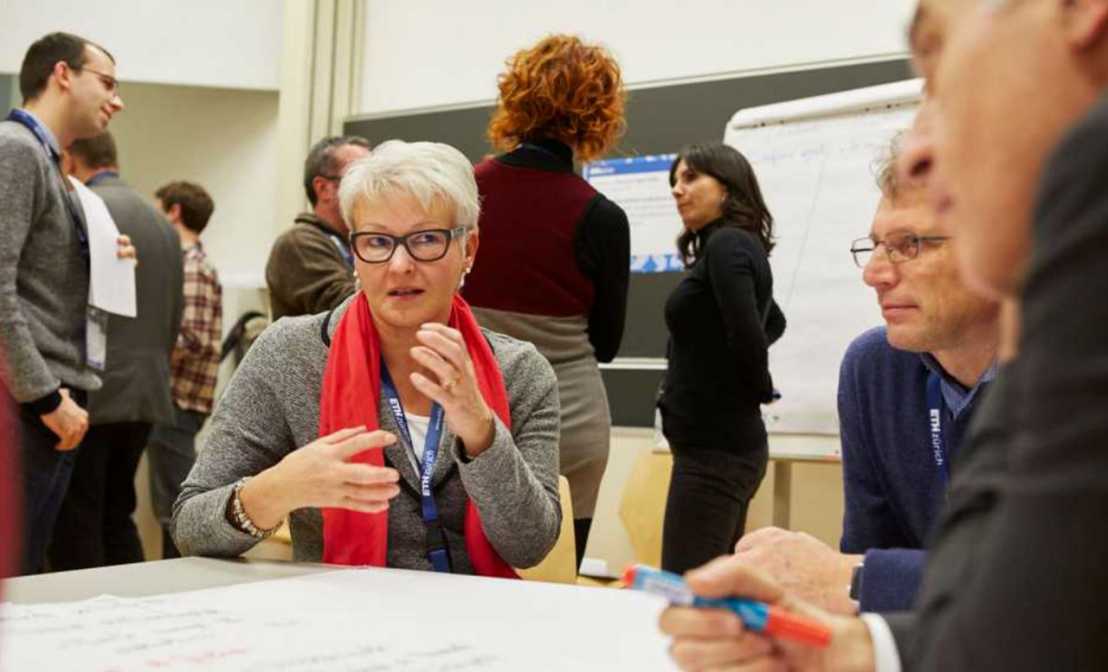
Are you a newly appointed professor? Join our next Leadership4newFaculty programme with other new professors from across ETH. More information can be found here.
